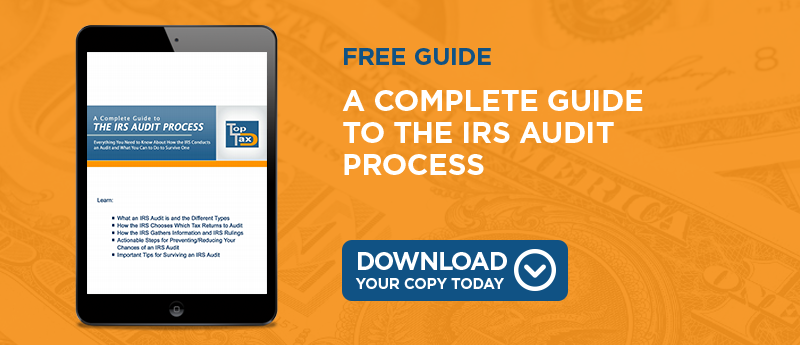
Not Reporting All of Your Income
One of the biggest red flags for the IRS is failing to report all of your taxable income. If you get income from a source other than wages and salaries be sure to include that on your return as well.
Taking Large Deductions for Charitable Donations
Noncash charitable donations are notoriously difficult for the IRS to track. When you claim an inordinately high amount of charitable donations without supporting documents you may risk an audit.
Operating a Cash Business
If you receive a large amount of your self-employment income through cash payments, you may be particularly at risk for an audit. Make sure you report all of your income and tips and keep good documentation.
Mathematical Errors on Your Return
Common math mistakes on your return and schedules can cause you to get audited. Taking your time when preparing your forms and double-checking your work can help you avoid making errors that will draw the attention of the IRS to your return.
Claiming High Business Losses
If you report a large business loss on your return, expect the IRS to have some questions about your business. Since business losses drastically reduce your taxable income, the IRS may have doubts about the veracity of your claim.
Excessive Self-Employment Deductions
Another big audit flag for self-employed taxpayers is deducting large amounts of business expenses. Be sure to keep good records and receipts to back up your deductions in case your return is flagged.
Taking the Home Office Deduction
The home office deduction allows taxpayers who use a dedicated space in their home exclusively for business to deduct a percentage of their mortgage expenses, utilities, and repairs as a business expense. It's easy for a taxpayer to claim that a space is used for business when it's actually a guestroom, so IRS agents frequently audit returns that claim this deduction.
Claiming an Automobile was Exclusively Used in Business
The IRS is also suspicious of taxpayers who claim they use their vehicles exclusively for business so that they can write off the car expenses on their self-employment income. Again, good records and receipts can protect you in case of an audit due to claiming this deduction.
Deducting Travel Expenses
Travel expenses can only be deducted when they are incurred in the course of business. Meals, entertainment and lodging may be deductible to a certain extent, but since some individuals exaggerate these numbers, the IRS tends to investigate these claims.
Claiming a High Amount of Itemized Deductions
If you claim an unusually high number of itemized deductions, you may also be audited. This is particularly true for taxpayers whose deductions are much larger than their taxable income.
The best way to protect yourself against these 10 common audit triggers is to keep excellent records of your income and deductions. In case you are audited, seek the assistance of a qualified tax resolution professional or certified public accountant for qualified audit representation.




